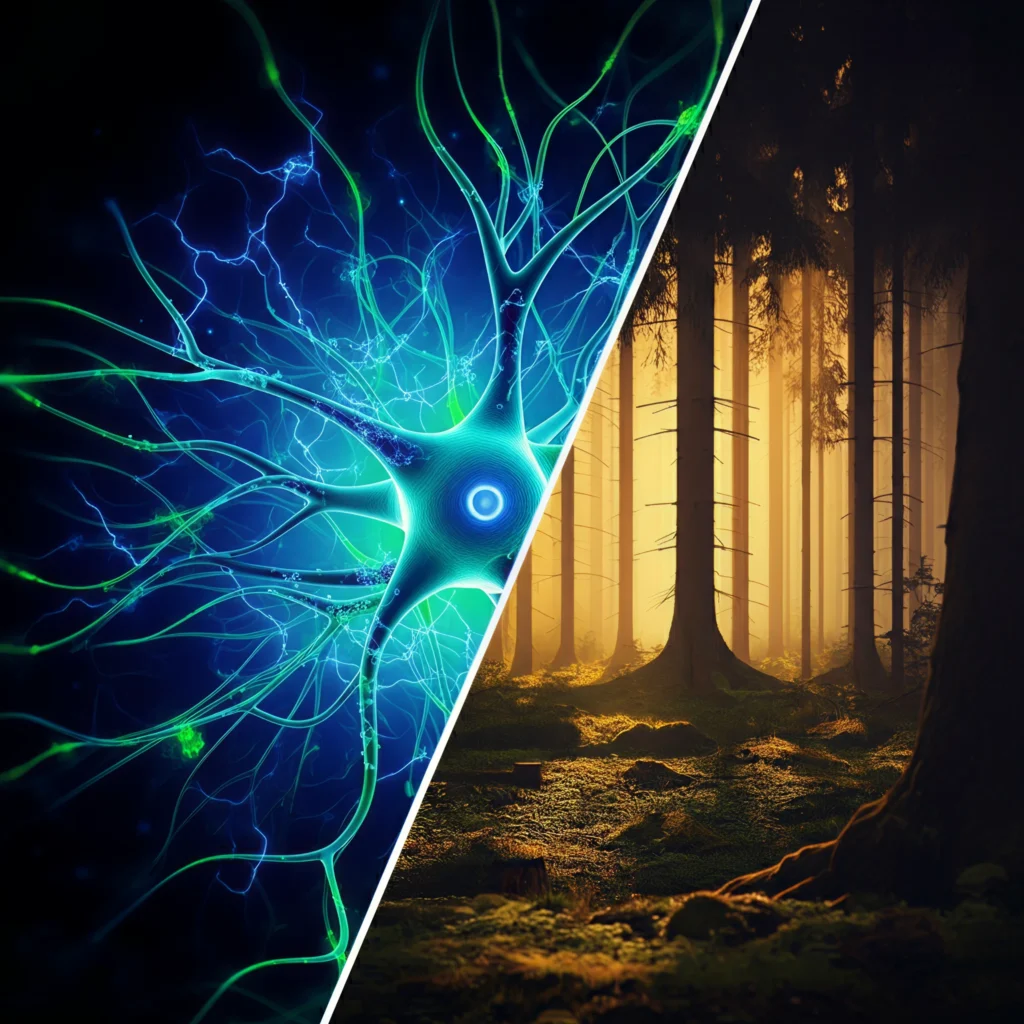Millions of students and adults turn to Adderall, a stimulant often prescribed for ADHD, believing it enhances productivity and helps them stay awake to focus on tasks. While it’s true that Adderall acts as a stimulant and can prevent fatigue, its reputation as a “study drug” is misleading.
Sleep plays a vital role in memory formation, particularly during the short-wave stage when information learned during the day is consolidated into long-term memory. A lack of quality sleep due to reliance on stimulants like Adderall can impair memory retention, making it harder to recall crucial information during exams or tasks.
Adderall is not just popular among students. Athletes, professionals, and even military personnel use it to combat fatigue, boost reaction times, and maintain focus. However, the potential risks, including insomnia and other side effects, raise significant concerns.
Are there safer, natural, nootropic alternatives to improve productivity and focus? The answer lies in striking a balance between maximizing performance and preserving both mental and physical well-being.
TL;DR:
Best OTC Adderall Alternatives:
- Best for temporary energy boosts: Performance Lab Caffeine 2 (official website), is ideal for quick alertness and focus, featuring low-dose caffeine and L-Theanine blend.
- Best for comprehensive cognitive support: Mind Lab Pro® (official website), suited for daily use to enhance focus and memory and reduce ADHD-like symptoms across multiple brain pathways.
- Best for stress reduction and focus: ThinkEase (Amazon.com), is ideal for anyone seeking enhanced attention and brain cell growth without the use of stimulants.
- Best for balanced cognitive enhancement: XBrain Nootropic (official website), is perfect for individuals seeking improved focus, memory, and stress resilience with a blend of natural ingredients like Bacopa Monnieri, L-Theanine, and low-dose caffeine for sustained daily performance.
- Best for high performers: Hunter Focus (official website), is designed for professionals seeking enhanced memory, focus, and stress resilience with a premium blend of adaptogens and nootropics.
Adderall 101
Adderall, a prescription amphetamine, consists of 25% levoamphetamine and 75% dextroamphetamine salts. It crosses the blood-brain barrier quickly and interacts with trace amine-associated receptor 1 (TAAR1) and vesicular monoamine transporters 2 (VMAT2). This interaction releases stored dopamine and norepinephrine, producing the stimulant effects often sought by users.
However, research indicates that amphetamines may be neurotoxic over time. They can deplete levels of dopamine and norepinephrine, impair receptor function, and hinder dendrite growth. This can lead to tolerance, requiring higher doses to achieve the same effects.
While Adderall may provide benefits for those clinically diagnosed with ADD or ADHD, many are seeking natural, over-the-counter alternatives like nootropics, recognizing that the long-term impact on brain health may outweigh the short-term advantages for ckly and interacts with trace amine-associated receptor 1 (TAAR1) and vesicular monoamine transporters 2 (VMAT2). This interaction releases stored dopamine and norepinephrine, producing the stimulant effects often sought by users.
Enter Nootropics:
Nootropics, often called “smart drugs,” are substances claimed to boost cognitive functions like focus, memory, and motivation. Many are marketed as alternatives to Adderall, a prescription medication for ADHD and narcolepsy, offering similar benefits without a prescription.
5 Nootropic Adderall Alternatives:
Performance Lab® Caffeine 2: This formula delivers a smooth energy boost with low-dose caffeine paired with L-Theanine and L-Tyrosine. It’s designed for short-term alertness and focus, supported by NutriGenesis® B-Complex for brain health, making it ideal for quick cognitive demands.
Mind Lab Pro: This broad-spectrum nootropic is a comprehensive solution for cognitive enhancement. It combines Citicoline, lion’s mane, and Bacopa Monnieri to enhance focus, memory, and cognitive performance. Marketed as a daily Adderall alternative, it supports brain energy and may reduce ADHD-like symptoms.
ThinkEase: With a high 4.9/5 rating, ThinkEase uses N-Acetyl L-Tyrosine, Rhodiola, and Lion’s Mane to boost focus and reduce stress. It promotes brain cell growth, making it a strong, non-stimulant option for sustained attention and productivity.
Hunter Focus: Tailored for high performers, Hunter Focus blends Bacopa Monnieri, Citicoline, and Ashwagandha to enhance focus, memory, and stress resilience. Its comprehensive formula, including Panax Ginseng and vitamins, supports professionals seeking cognitive clarity.
XBrain: This nootropic is a balanced choice for daily mental enhancement, emphasizing natural ingredients and a sustained approach. It combines L-Theanine, Bacopa Monnieri, and a low dose of caffeine to support focus, memory, and stress management. Designed for sustained cognitive performance, it includes adaptogens like Rhodiola Rosea and Panax Ginseng.
Wrap Up:
Still here? Finding effective over-the-counter alternatives to Adderall can be a game-changer for those seeking to boost focus, mental clarity, and energy levels without a prescription. These natural supplements typically combine ingredients like nootropics, adaptogens, and essential vitamins to support cognitive function and overall brain health.
From enhancing concentration and memory retention to reducing mental fatigue, these alternatives are designed to provide similar benefits to Adderall while minimizing potential side effects. Exploring these options can help individuals improve their productivity and maintain a balanced lifestyle, all through accessible and non-prescription solutions.
